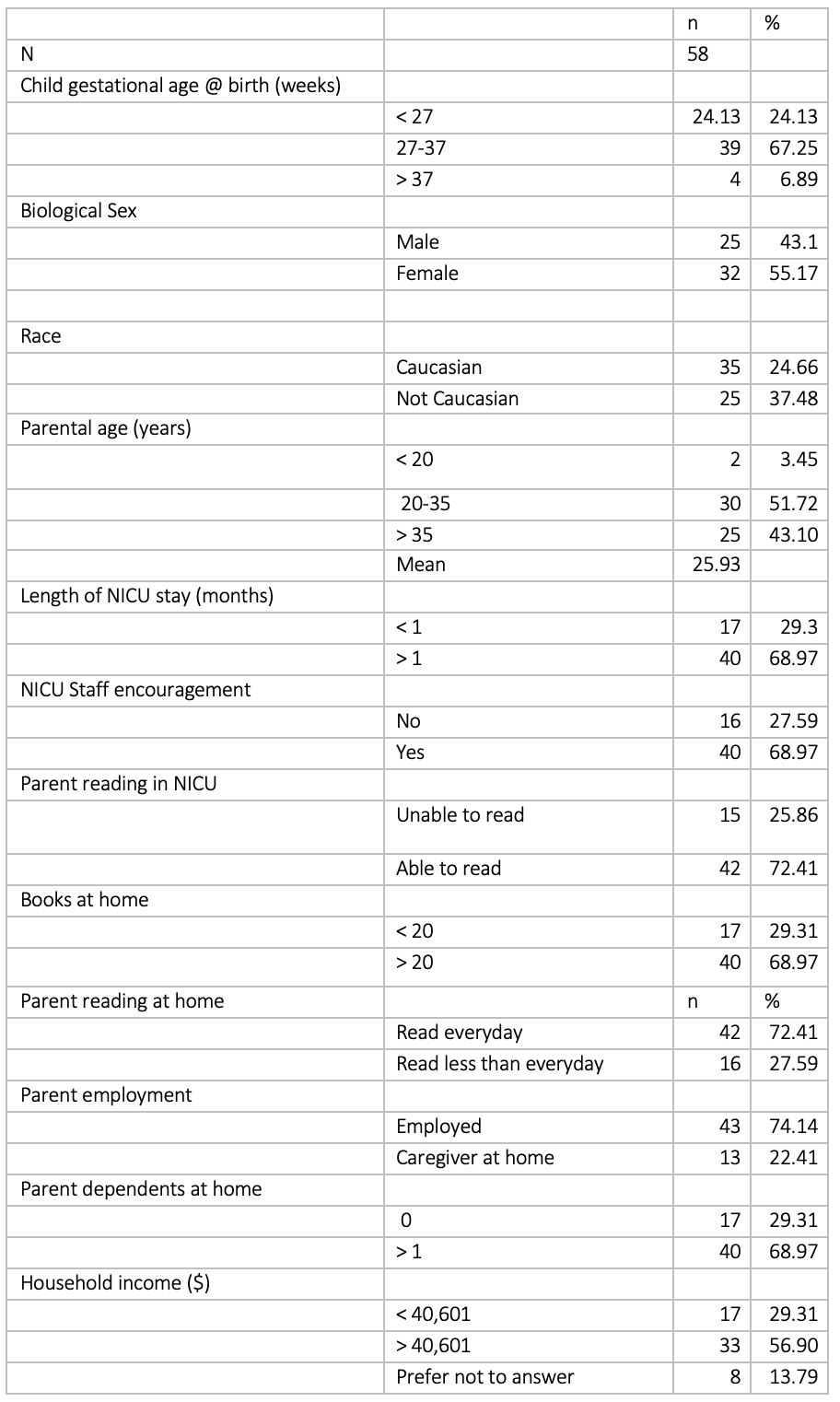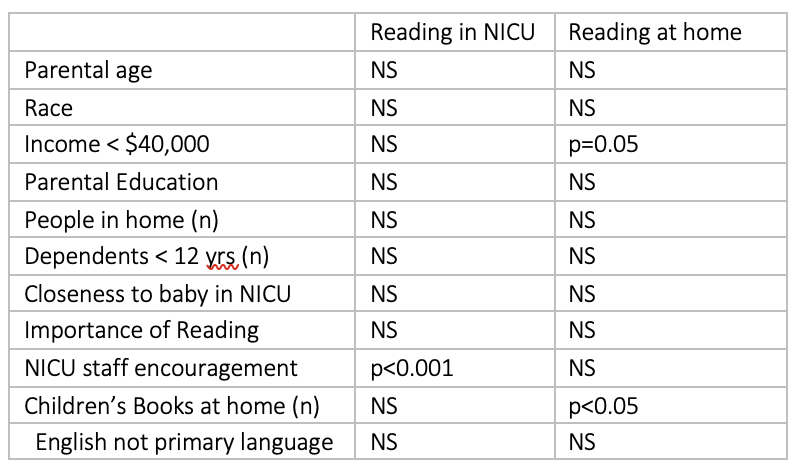Developmental and Behavioral Pediatrics: Parenting
Developmental and Behavioral Pediatrics 5
685 - Neonatal Intensive Care Unit Graduates: Factors Influencing Parental Reading
Publication Number: 685.307

Saumya Vodapally, BS (she/her/hers)
Researcher
Connecticut Children's Medical Center
Boston, Massachusetts, United States
Presenting Author(s)
Background:
Reading aloud to children plays a crucial role in brain development from the time of birth. By 25 weeks gestational age a fetus has auditory maturity to respond to external stimuli. Learning and language acquisition begins to develop at 35 weeks gestation. In comparison to healthy newborns, infants admitted to the Neonatal Intensive Care Unit (NICU) are at higher risk of language delays. Little is known about reading to preterm infants.
Objective:
To describe parental frequency of reading to their children during and after NICU admission and the impact of social factors and parental attitudes on reading frequency.
Design/Methods:
This was a prospective survey study. Parents of NICU graduates followed in the Neonatal Neurodevelopmental Follow-up Program completed a survey during clinic visits between February 2 and November 15, 2022. Parents of children < 3 years of age, who were previously admitted to NICU were included. Survey items were related to infant NICU stay, parental education, primary language, social and economic status, and infant’s exposure to reading in the NICU and at home post-discharge.
Results:
Fifty-eight parents completed the survey. Infant characteristics included: 14 (25%) were < 27 weeks gestation, 39 (68%) were 27-37 weeks and 4 (7%) were >37; 43% were male and 55% female; and 40 (70%) stayed in the NICU >1 month. Of 54 (96%) parents who reported reading to their infant as important, 39 (72%) read at least once a week to their infant in the NICU and 39 (70%) read daily at home. (Table 1) Parents were more likely to read to their infant in the NICU when encouraged by staff (p< 0.01) and read daily to their child at home when there were >20 books at home and had higher household income, (p<0.05). More than 70% of parents reported both high levels of closeness to their baby in the NICU and high reading frequency in the NICU. More than 90% of parents who reported reading to their infant as important also reported singing/listening to music with their infant as important. Parental race, ethnicity, education, primary language spoken at home, employment and the number of dependents did not correlate with parental reading in the NICU or at home (Table 2).
Conclusion(s):
Staff encouragement in the NICU was associated with parents' attitude towards reading to their infants. Having children’s books in the household correlated with reading in the home. Ensuring encouragement from NICU staff and providing parents with resources for books in the home may improve language exposure of high-risk children and improve their long-term outcomes. 

